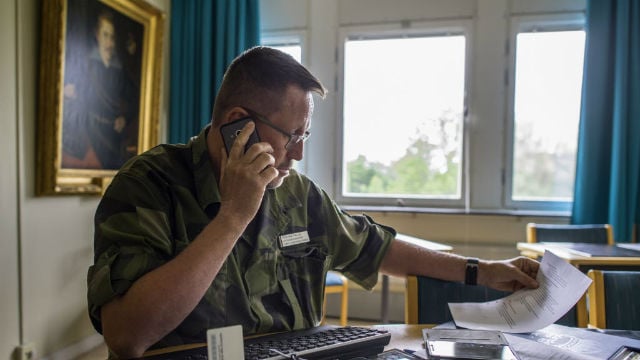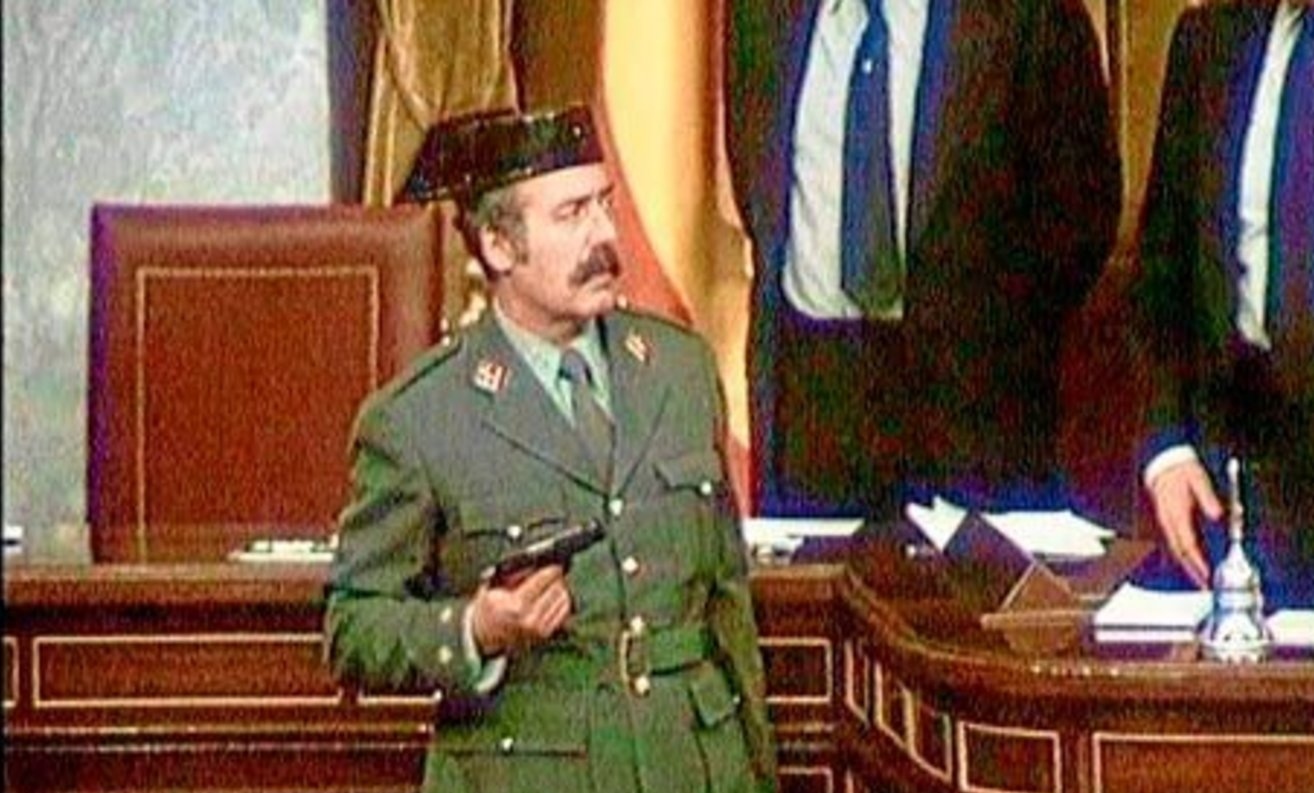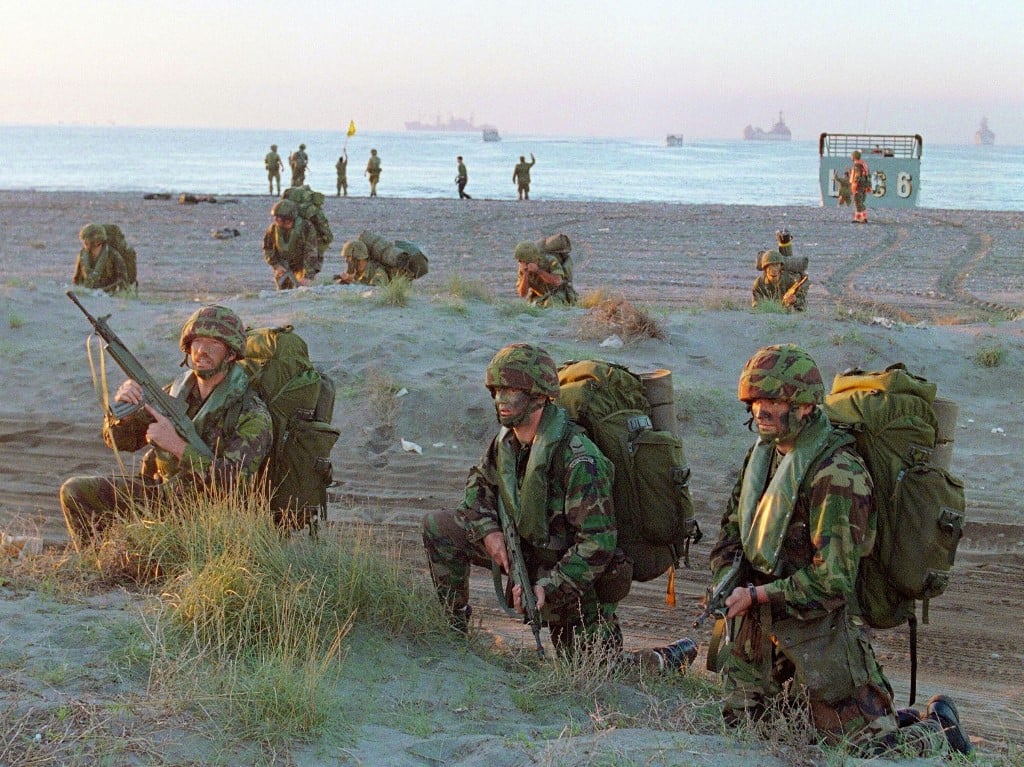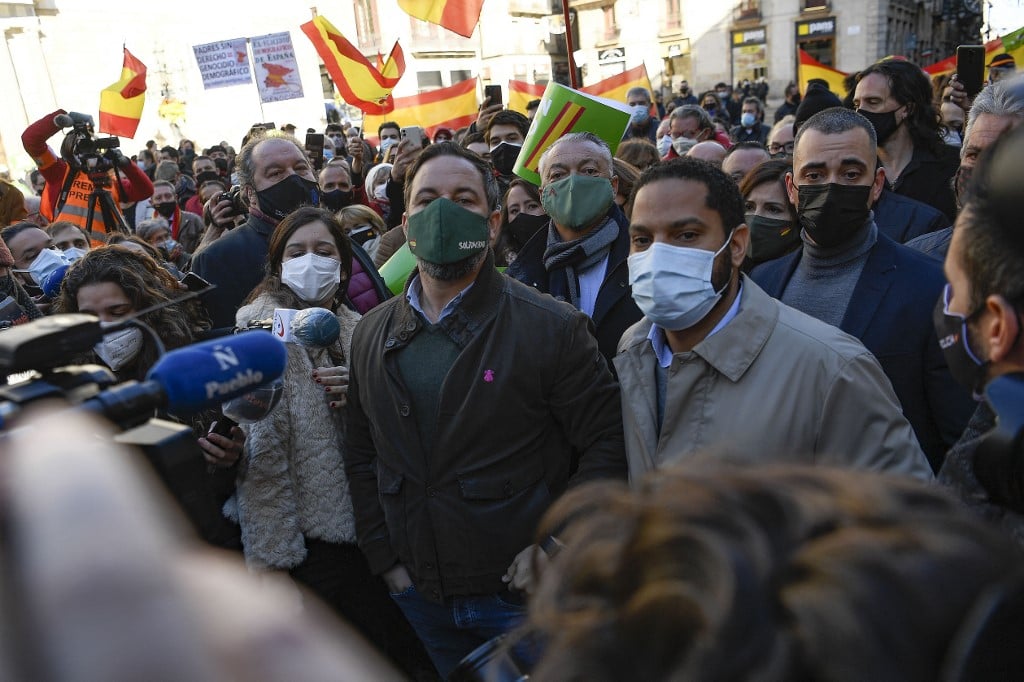ARMY
Sweden mobilises Home Guard for first time since 1975
Sweden’s 22,000 volunteer soldiers were on Tuesday evening grabbing their guns and uniform, cancelling social engagements, and rushing to their stations, as the Swedish Armed Forces launched its biggest surprise exercise since 1975.
Published: 6 June 2018 07:53 CEST

Per-Erik Pallin from Sweden's Central military region calls up the Life Guards regiment for the exercise on Tuesday. Photo: : Bezav Mahmod/Försvarsmakten
“The idea behind this exercise is that we are now strengthening our military defence of the country,” Sweden’s Supreme Commander Micael Bydén told Sweden’s state broadcaster SVT. “Its part of my duty to ensure that we boost our operative capabilities.”
According to a press release, all 40 Home Guard battalions have been mobilised for the exercise, which means Swedes will see them carrying out duties and patrolling at airports, ports and on the streets throughout Wednesday's National Day holiday.
The exercise is part of Sweden’s national effort to rebuild its Cold War Total Defence strategy in response to an increasingly belligerent Russia. The last time Sweden’s Armed Forces called up the entire Home Guard at once was in 1975 at the height of the Cold War.
Just a week ago Sweden’s Civil Contingencies Agency sent out its “If Crisis or War Comes” brochure to more than four million Swedish households, advising them to stock up on water, tinned and dry food, and other essentials to increase Sweden’s resilience.
The country also last month reestablished a regiment on the Baltic island of Gotland.
In the event of an invasion, Sweden’s Home Guard is responsible for protecting the core functions of the Swedish state, guarding government agencies, airports, or ports, so that the professional army is free for front-line duties.
“This is an extremely important exercise,” Bydén said. “That an organisation which is close to half of our war organisation, which has these important duties across the whole country, which they need to be able to carry out at short notice — as Supreme Commander, of course I need to have confirmation that it all works.”
“I expect I’m going to get that confirmation this evening and tomorrow,” he said.
The exercise was voluntary and the Bydén hoped that roughly half of the country's 22,000 home guard volunteers would turn up.
“Home Guard soldiers are extremely loyal and I hope of course that as many as possible choose to take part in the exercise,” he said in a statement. “The Home Guard's duties to protect and guard are fundamental to the ability of the rest of the Swedish Armed Forces to defend Sweden.”
In a press release put out after the exercise, it was revealed that 40 percent of one regiment, the 40th Home Guard Battalion in Bohuslän, had been able to take part.
The Armed Forces hope that the exercise will show potential aggressors that Sweden’s defence capabilities are ready and functional, and increase citizens’ faith that they are well-protected.
Bydén said that it was necesary to increase Sweden’s defence capabilities because the security environment around Sweden had gone “in the wrong direction”.
“It’s not about going around and being worried. It’s about being conscious of what is happening and trying to understand it, taking in as much information as possible,” he said. “We’re doing our part here in the Swedish Armed Forces, and you should see this as a completely natural step. An important step.”
Url copied to clipboard!




 Please whitelist us to continue reading.
Please whitelist us to continue reading.
Member comments